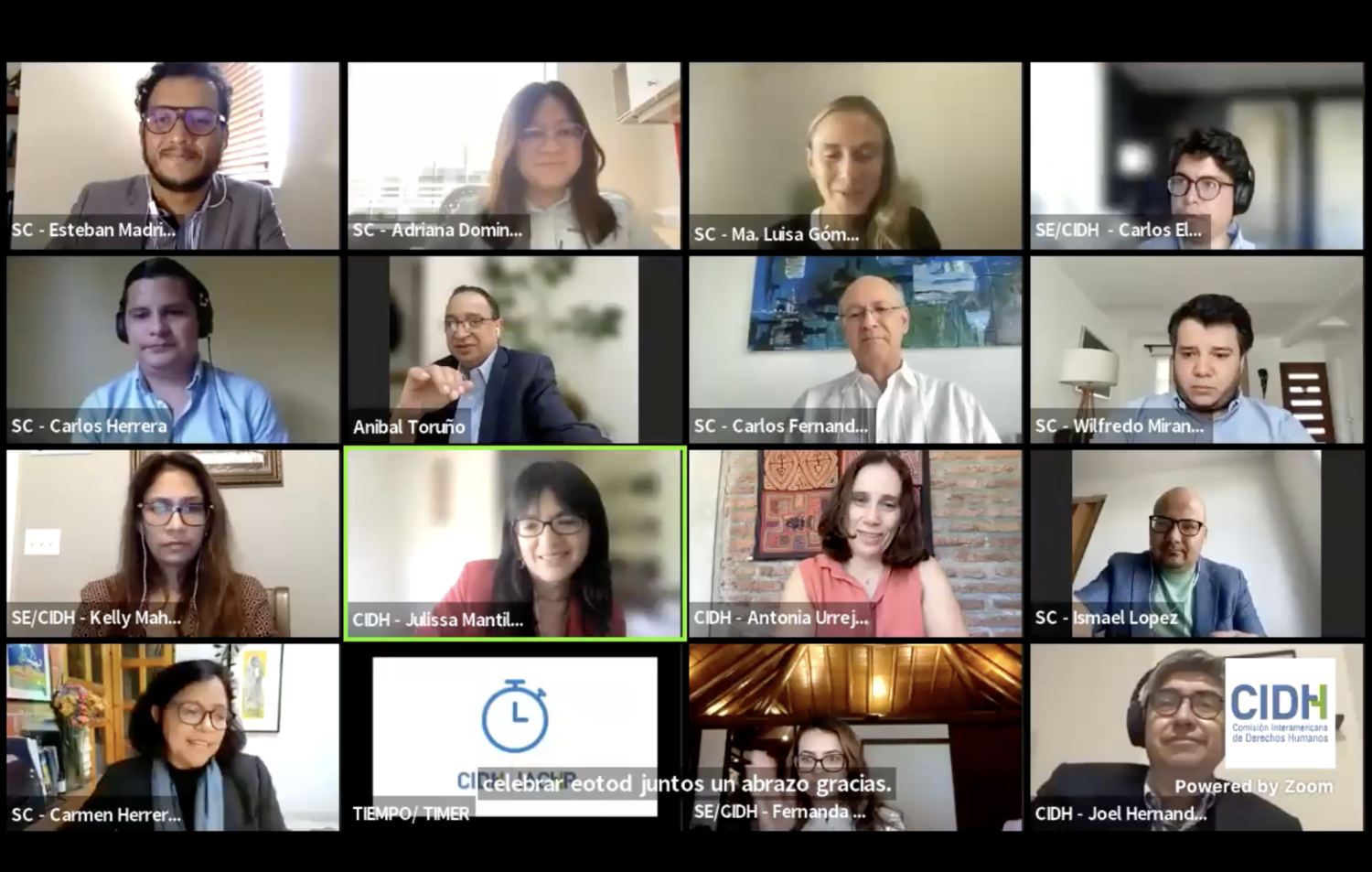Before the IACHR: State of Nicaragua fails to comply with precautionary measures granted in favor of independent journalists
Within the framework of the 182nd regular period of sessions of the Inter-American Commission on Human Rights (IACHR), this Tuesday, December 14th, independent journalists—the beneficiaries of precautionary measures—and representatives of […]

Within the framework of the 182nd regular period of sessions of the Inter-American Commission on Human Rights (IACHR), this Tuesday, December 14th, independent journalists—the beneficiaries of precautionary measures—and representatives of the International Institute on Race, Equality and Human Rights (Race and Equality) participated in a public hearing to expose the absolute failure to implement the measures awarded in favor of 49 members of the independent media Confidencial, Divergentes, Radio Darío and La Costeñísima. They also pointed out that the intimidating acts the beneficiaries have continued to be subjected to are part of the systematic patterns of repression of freedom of expression and the press that exist in Nicaragua.
Since 2018, the IACHR granted the first precautionary measures to the journalistic team of Confidencial and Radio Darío. Later, in 2019, measures were granted to the director of La Costeñísima Sergio Warren León (D.E.P.), his family and other members of the media; and recently, 6 months ago, the IACHR granted measures to the press officer of said Caribbean outlet, Kalua Salazar, and her family. Unfortunately, to date, the State of Nicaragua has not adopted any measure to protect the life and integrity of these people, has not removed any obstacles so that they can carry out their work risk-free, and has not investigated the facts that gave rise to the award of said measures or those that occurred later. On the contrary, it has taken actions against these measures, forcing the majority into exile.
For Divergentes’ photojournalist Carlos Herrera, “Nicaragua has become an openly hostile terrain, under constant threat, or a prison for those who practice independent journalism from within the country.”Faced with the danger of physical aggression, assault and confiscation of our assets and work instruments, the siege of the police and paramilitaries, and even the possibility of being arrested and criminalized for exercising his profession, Herrera decided to leave the country a few months ago.
On his part, the Director of Confidencial Carlos Fernando Chamorro denounced that he had been forced into exile again, and emphasized that since May of this year, the Public Ministry unleashed a new repressive wave against independent journalism. At least 45 journalists – among them, beneficiaries of precautionary measures – were subjected to hostile interrogations and were even threatened with opening investigative processes against them, under the Special Law on Cybercrimes.
Wilfredo Miranda, a journalist for the digital outlet Divergentes, who is in exile for the second time, warned that the beneficiaries who continue on the ground are victims of persecution and siege, acts of surveillance and intimidation both in their homes and of their relatives.
Aníbal Toruño, director of Radio Darío -outlet that suffered a fire in the context of the social protests of April 2018- denounced that, the day after the election on November 7th, the Radio facilities were besieged by motorcycles belonging to supporters of the regime, who detonated mortars with the aim of frightening and intimidating the workers who were at the facilities at that time.
Finally, the legal advisor of Race and Equality, María Luisa Gómez, pointed out that the workers of La Costeñísima continue to be exposed to a situation of very serious risk. In addition to the continuous threats and smear campaigns, police and parastatal agents regularly besiege the radio facilities and the homes of their workers …”
It should be noted that, in the middle of this year, the IACHR’s Office of the Special Rapporteur for Freedom of Expression warned that at least 65 Nicaraguan journalists were in an extreme situation of vulnerability and risk.
At the hearing, Rapporteur Pedro Vaca, IACHR Special Rapporteur for Freedom of Expression, stated that, in the current “censorship regime” there are no guarantees for freedom of expression; However, “the reconstruction of the rule of law in Nicaragua involves guarantees of freedom of expression and the work of journalists, and … justice for the victims also involves the press, that document human rights violations”, Which is why one recognizes the importance of Nicaraguan journalism that, in adverse circumstances, “not only persists, but also with standards of quality and rigor.”
Petition
The beneficiaries and their representatives asked the Commission to issue a follow-up resolution, urging the State to implement the measures granted, and to use the mechanism of petitions to examine the violations of the American Convention that the State has provoked.
They also asked that efforts to monitor, scrutinize and report the situation faced by the beneficiaries of the measures and the people of Nicaragua be intensified, and they urged the IACHR to require the State of Nicaragua to:
- Immediately cease any retaliation against the beneficiaries, journalism, and independent media, revoking the arrest warrants issued, refrain from issuing new ones.
- Release all people arbitrarily detained for political reasons, for exercising their right to express themselves and for supporting the work of the independent media.
- Take all necessary measures so that journalists who had to go into exile can return to the country with the due guarantees for their safety, life and physical integrity. Likewise, to refrain from imposing arbitrary impediments or obstacles to those who wish to leave Nicaragua.
- Repeal legislation that restricts freedom of expression and the press, as well as international cooperation towards independent journalism.

